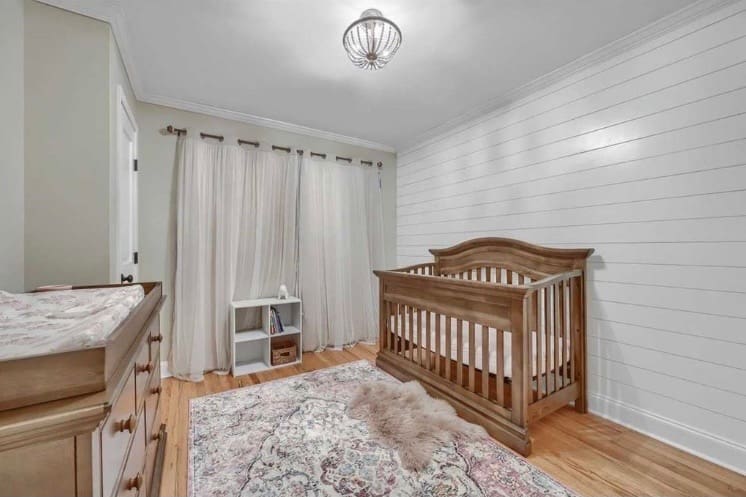Hey Friend. I'm Sara.
Transforming exhausted parents into well-rested families through gentle, customized sleep solutions and compassionate postpartum support in the Hudson Valley.
Sleep Consultant & Postpartum Services
Work with me
Gentle Fixes for 5 Common Baby Sleep Problems Without Tears
July 11, 2025

If you’re reading this at 2 a.m. with a baby in your arms, I see you. You’re not doing anything wrong—and you’re definitely not alone. Baby sleep struggles are incredibly common, and as a certified sleep consultant and mom, I help families just like yours navigate them every day.
Whether your little one is fighting bedtime or waking up at the crack of dawn, know this: there are gentle, effective ways to improve your baby’s sleep without crying it out.
Let’s walk through five of the most common baby sleep challenges—and how to address them with compassion and confidence.
1. Your Baby Only Naps in Your Arms
Why it happens:
Newborns crave closeness. Your arms are warm, safe, and familiar. But when this becomes the only way your baby knows how to fall asleep, it can leave you feeling stuck.
How to support better naps:
Begin by creating a cozy sleep space with white noise, a swaddle or sleep sack, and a short, calming routine. Try offering one nap a day in the bassinet using the gentle “pick up, put down” method. It’s okay to go slow—this is about building trust, not rushing transitions.
2. Frequent Night Wakings
Why it happens:
Some babies rely on sleep associations (like feeding or rocking) to fall asleep, which means they need the same help each time they wake up. Others may be going through a sleep regression or developmental leap.
How to ease night wakings:
Focus on a consistent bedtime routine and begin putting your baby down drowsy but awake. If your baby is older than 4 months, gentle sleep shaping techniques can help extend stretches of sleep—without the need for cry-it-out approaches.
3. Short Naps (a.k.a. 30-Minute Catnaps)
Why it happens:
Your baby may be waking after one sleep cycle and not yet know how to transition to the next on their own.
How to lengthen naps:
Stick to a regular nap schedule and create a relaxing wind-down routine beforehand. Slightly extend wake windows to increase sleep pressure—but watch for signs of overtiredness. Over time, this helps babies consolidate their sleep and get more rest.
4. Early Morning Wakings (Before 6 a.m.)
Why it happens:
Overtiredness, a bedtime that’s too late, or early morning light can all contribute to early rising.
How to gently shift morning wake-ups:
Use blackout curtains to keep the room dark and make sure bedtime isn’t pushed too late. If your baby wakes at 4 or 5 a.m., wait a few minutes before responding—sometimes they’ll drift back to sleep on their own.
5. Fighting Bedtime
Why it happens:
This can show up during transitions—like dropping a nap—or with toddlers testing boundaries and asserting independence.
How to create smoother evenings:
Keep bedtime routines calm, predictable, and consistent. Incorporate soothing elements like reading, gentle massage, or lullabies. For toddlers, bedtime charts or visual cues can help make the routine feel more fun and empowering.
Every Baby’s Sleep Problems Can Be Different—And That’s Okay
There’s no one-size-fits-all solution to baby sleep. What works for one family may look different for another—and that’s why I take a personalized approach to every sleep plan I create.
If you’re feeling overwhelmed or like you’ve tried everything, you don’t have to navigate this on your own.
Need Support Tailored to Your Baby?
Let’s find what works for you.
Book your free consult and get compassionate, evidence-based support—so your whole family can rest easy. Or check out my services to help you and your little one get a better nights sleep!
Free Resource for Tired Parents
Need help figuring out when your baby should be sleeping?
Download my FREE Wake Windows Guide — your ultimate resource for managing your baby’s sleep from the newborn stage to toddlerhood.
✨It’s gentle, easy to follow, and designed to help you feel more confident about your baby’s schedule.
Certified Pediatric Sleep Consultant & Postpartum Doula
Guide to Understanding Toddler Sleep Regression
Sleep Training with a Gentle Approach
Why Seeking Sleep Advice for Your Baby on Social Media Could Harm
download now
Your ultimate guide to managing your babies sleep from the newborn stage to toddlerhood.
Transforming exhausted parents into well-rested families through gentle, customized sleep solutions and compassionate postpartum support in the Hudson Valley.
Disclaimer:
Not a Peep Sleep Consulting LLC is intended for informational & educational purposes only & should not be used as a substitute for medical advice or treatment. Always seek medical advice from your MD or other qualified health professional regarding medical concerns, care & diagnosis. Not a Peep Sleep Consulting LLC is to be used at your own risk & will not be held liable for any damages or injury that may occur.